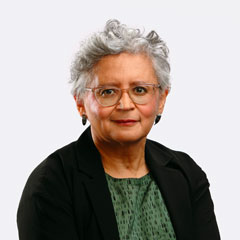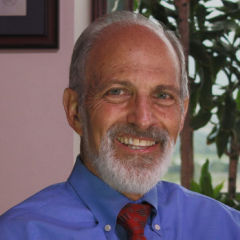After the excitement of being selected as semi-finalists, each organization is visiting the MacArthur Foundation for a day to address initial feedback about its proposed solution, determine how to attract broader attention to its project, and think about how to further strengthen its proposal.
During the semi-finalist phase of 100&Change, MacArthur is placing special emphasis on each proposal’s quality, credibility, impact, and scale. While there is no generally accepted definition of scaling, we view it as expanding, adapting, and sustaining successful projects in a geographic space, over time, to reach a greater number of people.
We enlisted the outside firm Management Systems International (MSI) to help the semi-finalists address technical and organizational capacity challenges and demonstrate authentic engagement with affected communities, including others who work in the same space and those who stand to lose.
Over the next several months, the eight semi-finalists will be asked to elaborate on their plans for reaching scale and for overcoming the challenges they are likely to face along the way. Their responses will be informed by support from MSI and input from key partners and affected communities. Semi-finalists will be asked to address these seven issues:
- Planning for scale: the strength of the scaling strategy, including plans for dealing with the different ways the problem – or the proposed solution – may manifest in different populations and contexts
- Credibility: the persuasiveness of the proposed solution to the key audiences, and/or the strategy for establishing its credibility;
- Support: evidence that policy makers, funders, and proposed beneficiaries recognize the urgency and priority of solving the problem, and/or plans for galvanizing that sense of urgency
- Comparative Advantage: evidence that the proposed solution is – or can become – perceived by policymakers, practitioners, and beneficiaries as preferable to alternative solutions and to the status quo
- Ease of Adoption: identification of the biggest changes that need to be made in policy and in practice, and plans for enhancing and assisting transferability
- Organizational Capacity: elaboration of the organizational and human resource implications of implementing the proposed solution at scale and plans for ensuring the needed capabilities
- Financial Sustainability: budgets and plans for reaching scale and for implementing at scale, during the grant funding and subsequently
MSI’s approach to scaling, summarized in Scaling Up—From Vision to Large-Scale Change, helped inform the Foundation’s thinking on how to scale proposals and provides a framework for these discussions.
Based on the first round of in-person conversations with 100&Change semi-finalists, they seem open to the idea that their proposals may change in response to constructive feedback during this phase of the competition. Whether they receive funding from MacArthur or other new support, our goal is to see each of the eight semi-finalists emerge with the stronger and more compelling proposals that can make an even greater impact in the world.





